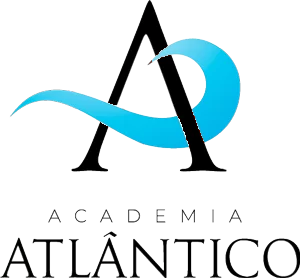Prison Break? In Defense of Correlationism
DOI:
10.69577/2965-6257.2024.9Keywords:
Epistemology, Correlationism, Object oriented ontology, Speculative realismAbstract
A core presumption of object oriented ontology and other speculative realisms is that there is a world independent of the mind that can be successfully inquired and should take center stage in our reflections again. A profound case for this realist presumption is found in Meillassoux’s After Finitude. He aims to secure our access to reality as it is in itself by refuting correlationism according to which we cannot escape reality as it is thought by us. He presents three arguments: ancestrality, facticity and mathematization. On the first argument correlationism fails because it cannot render scientific statements about an universe anterior to us meaningful. I address the worry that he might not take this to be a real argument against correlationism and argue that it in any case fails. On the second argument correlationism is flawed since it remains committed to absolute possibilities. I argue that this argument is untenable as well. On his third argument correlationism fails because science reveals a mathematically describable reality indifferent to our existence. I argue that the almost perfect mathematization of nature can actually be cashed out as an argument for correlationism. I conclude by proposing an alternative way of showing that mathematics is the language of the absolute understood as a radical contingent hyperchaos.
Downloads
Metrics
References
Brassier, R., Grant, I.H., Harman, G., & Meillassoux, Q., “Speculative Realism,” Collapse III, 2007, pp. 306-449.
Brassier, R., Nihil Unbound: Enlightenment and Extinction. Basingstoke: Palgrave MacMillan, 2007.
Chaitin, G., Meta Math! The Quest for Omega. New York: Vintage Books, 2006.
Chaitin, G., The Limits of Mathematics: A Course on Information Theory and the Limits of Formal Reasoning. London: Springer-Verlag, 2002.
Dummett, M., Origins of Analytical Philosophy. Cambridge: Harvard University Press, 1993.
Hallward, P., “Anything is possible: a reading of Quentin Meillassoux’s ‘After Finitude’,” In: Bryant, L., Srnicek, N., & Harman, G., (eds.) The speculative turn: continental materialism and realism. Melbourne: re.press, 2011, pp. 130-141.
Harman, G., “Meillassoux’s Virtual Future,” Continent 1(2) 2011, pp. 78-91.
Harman, G., Object-Oriented Ontology: A New Theory of Everything. London: Penguin, 2018.
Harman, G., “Quentin Meillassoux: A New French Philosopher,” Philosophy Today, Spring 2007, Vol 51, No. 1, pp. 104-117.
Harman, G., Quentin Meillassoux: Philosophy in the Making. Edinburgh: Edinburgh University Press, 2011.
Harman, G., Speculative Realism: An introduction. Cambridge: Polity Press, 2018.
Meillassoux, Q., After Finitude. An Essay on the Necessity of Contingency. Trans. Ray Brassier. New York: Continuum, 2008.
Meillassoux, Q., Iteration, Reiteration, Repetition: A Speculative Analysis of the Meaningless Sign. Berlin: Freie Universität, 20 April 2012.
Meillassoux, Q., Time without Becoming. Edited by Anna Longo. Mimesis International, 2014.
Rutten, E., Contra Kant: Herwonnen ruimte voor transcendentie. Utrecht: KokBoekencentrum Uitgevers, 2020.
Rutten, E., “Nader tot de chaos: Meillassoux’s greep naar het absolute” In: Rutten, E., Het retorische weten. Amsterdam: Leesmagazijn, 2018, pp. 153-161.
Rutten, E., Over de aard van de wiskundige werkelijkheid, Amsterdam: unpublished, available at https://www.gjerutten.nl, 21 March 2005.
Downloads
Published
- Visualizações do Artigo 730
- PDF downloads: 342
How to Cite
Issue
Section
License
Copyright (c) 2024 Emanuel Rutten

This work is licensed under a Creative Commons Attribution-NonCommercial-NoDerivatives 4.0 International License.

 Português (Brasil)
Português (Brasil)
 English
English
 Español (España)
Español (España)




